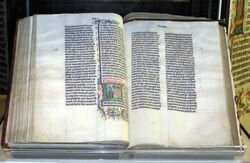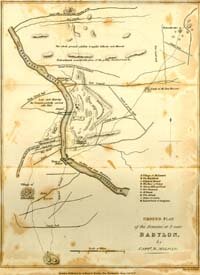The Biblical canon is an exclusive list of books written during the formative period of the Jewish or Christian faiths; the leaders of these communities believed these books to be inspired by God or to express the authoritative history of the relationship between God and his people (although there may have been secondary considerations as well).
There are differences between Christians and Jews, as well as between different Christian traditions, over which books meet the standards for canonization. The different criteria for, and the process of, canonization for each community dictates what members of that community consider to be their Bible.
At this time, all of the below canons are considered to be closed; that is, most adherents of the various groups do not think that additional books can be added to their Bible. By contrast, an open canon would be a list of books which is considered to be open to additional books, should they meet the other criteria. Each of the canons described below was considered open for a time before being closed. Generally, the closure of the canon reflects a belief from the faith community that the formative period of the religion has ended, and that texts from that period can be collected into an authoritative body of work. Certain non-mainstream churches (such as the Latter-day Saints) which accept a Bible as part of their formally adopted sacred literature may also include other works in the totality of their canon. See Sacred text for examples.
The relationship between the closing of the canon and beliefs about the nature of revelation may be subject to different interpretations. Some believe that the closing of the canon signals the end of a period of divine revelation; others believe that revelation continues even after the canon is closed, either through individuals or through the leadership of a divinely sanctioned religious institution. Among those who believe that revelation continues after the canon is closed, there is further debate about what kinds of revelation is possible, and whether the revelation can add to established theology.














































